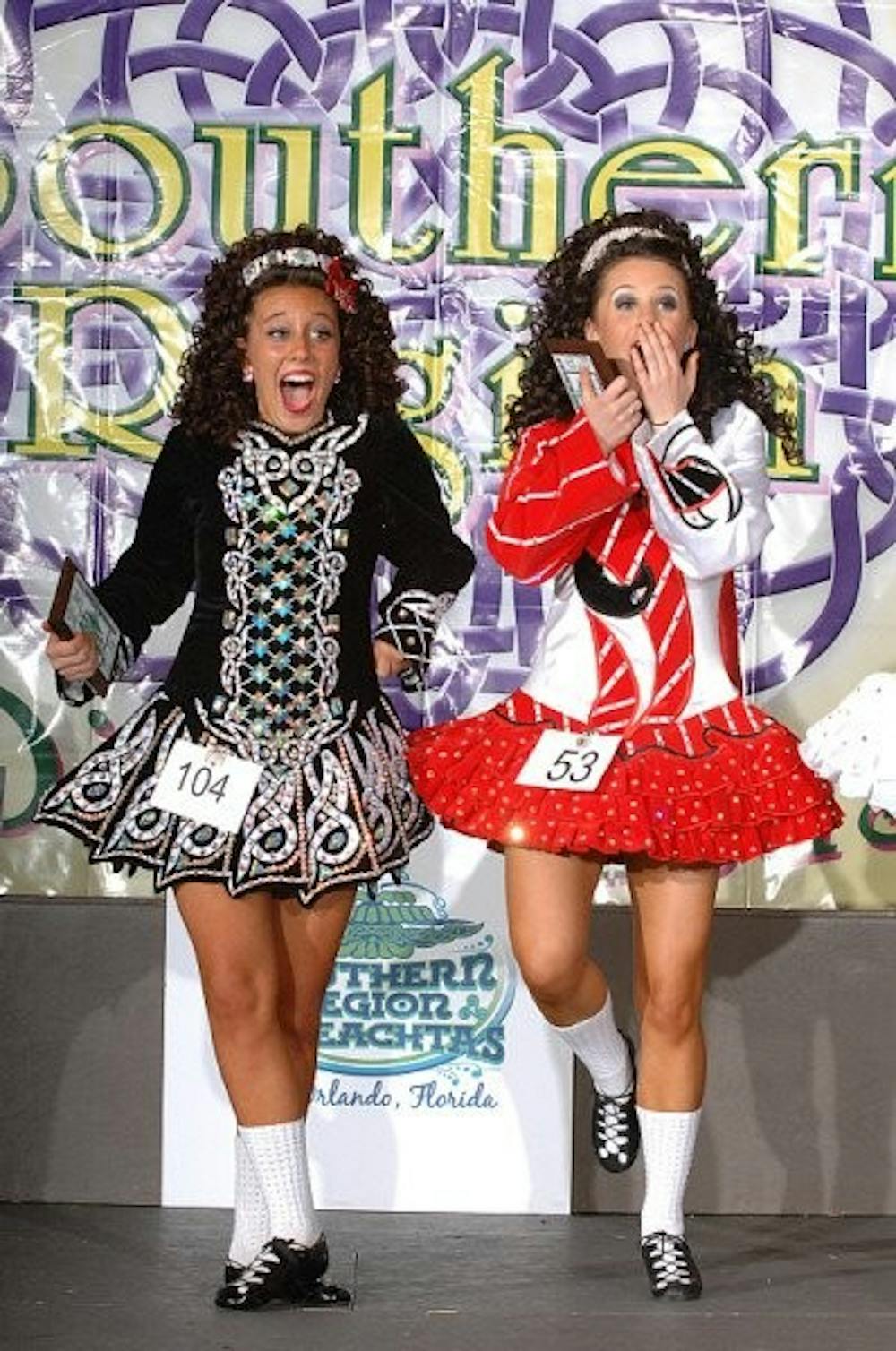In her first semester, first-year Engineering student Erin Murphy has balanced adjusting to a new environment with daily practices for regional, national and global Irish dancing competitions.
Influenced by her family, Murphy began Irish dancing at the age of five.
“My dad’s side of the family is really Irish, so when my dad was a kid, all my aunts Irish danced,” Murphy said. “When I was five, a family friend started [Irish dancing] and they [suggested that I] start too.”
When Murphy moved from New Jersey to Richmond, she began dancing with the Broesler School of Irish Dance, where she still dances today. Throughout high school, Murphy would drive from Richmond to Baltimore every Monday for practice, and would travel to New Jersey on the weekends.
At the University, Murphy has to work to balance her practice schedule with her college course load. In addition to practicing in the Memorial Gym studio almost every day, Murphy travels to Warrenton on Wednesdays to train with an instructor.
“I considered, before college, that I would become too absorbed in everything else and [dancing would be] too much of a time commitment, but I definitely don’t feel that way [now],” Murphy said. “I feel like when I didn’t [dance], there was something missing, and I can’t imagine not doing it.”
Eileen Paulson, one of Murphy’s dance instructors at Broesler, likes to think she had some influence over Murphy’s decision, but she says making the choice to dance in college is up to each individual student.
“As much as I want it for any college student, they must have that inner desire to keep going,” Paulson said. “The students are on their own when they go off to college. We can email them and text them and encourage them to continue, but they are the ones that must coordinate their class time, study time, practice time and social time.”
With hours blocked off for practicing each day, Murphy admits Irish dance is a big time commitment. But rather than adding to the high-pressure environment of college, dance practice helps Murphy organize her time, she said.
“I actually think it’s better for me, because when I’m not busy ... I feel like I waste more time,” Murphy said. “When I’m really busy, even though I do have to spend a lot of time dancing, I feel like it makes me more organized and I actually get more things done. It is a big commitment, but I don’t think it really hurts me a lot.”
One of Murphy’s major goals is to earn a medal at the World Irish Dance Championship, informally called “Worlds.” Leading up to this year’s spring competition in Canada, Murphy has already placed at both the regional and national levels. Though she has qualified for Worlds five times before and has competed three times, Murphy has never been ranked high enough to earn a prize.
“A lot of people stop [dancing] after high school,” Murphy said. “It might not be as difficult because there’s not as many people in the competition, but it also condenses out. There are less people, but they’re all really good. I’m definitely going to be training really hard to try [to place], because I don’t know how many more [World Competitions] I can go to.”
Paulson said Murphy's self-discipline and enthusiasm for the sport are "infectious."
“She inconspicuously raises the standard, not just here and there, but at every practice, competition or event," Paulson said. "Erin not only has a work ethic that is amazing, but she has an underlying passion that is her driving force.”
Murphy said that even after she decides to stop dancing in competitions, the Irish dance community will remain a part of her life.
“Even after I stop competing, I really want to do a show,” Murphy said. “They have shows like ‘Lord of the Dance’ and ‘Riverdance’ that go on tour. I really want to go on at least one tour. … I would [also] love to teach a dance class once a week for someone else and just be part of a dance school, so that Irish dance could still be a part of my life.”







